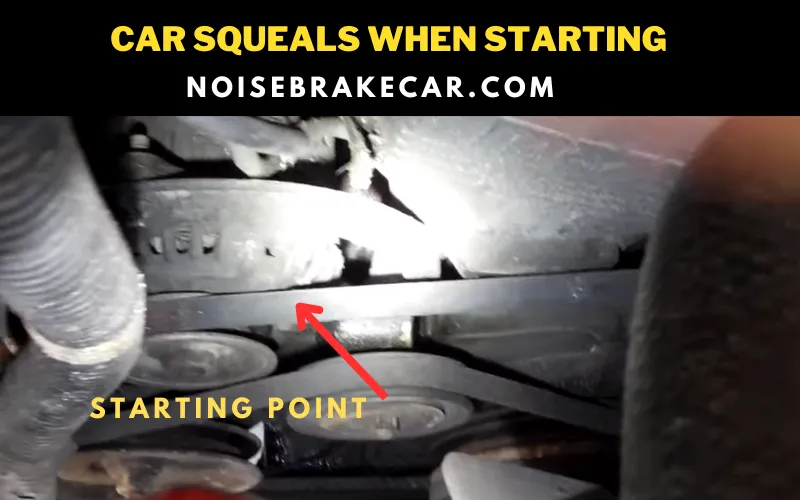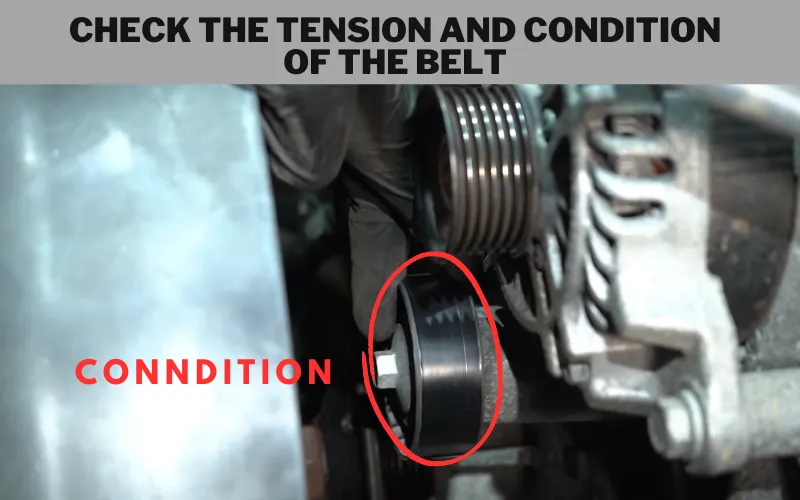If you hear a grinding noise, when starting your car, don’t worry, you are not the one only, it is a common problem that many drivers face. In article, we will discuss the possible causes of this squeaking noise and how to fix it. Read on to find out more!
Why Do Some Cars Squeal when Starting?
There can be several reasons why your car starts squeaking. If this has been happening to you for a several days. You may notice some patterns. Is the noise only heard when the car starts and stops after about 30 seconds?
Does the sound get worse in cold weather? If you notice such phenomena, the squeaking noise could be caused by the car’s belt. If the noise does not stop after starting the vehicle, it could indicate a more serious problem.
Find the Causes Squeaking Read Below Steps!
When your car squeaking, then determine these steps and find cause.

1) Listen to the Engine
Cars are equipped with numerous devices that require mechanical energy and are driven by rubber belts.
These include the alternator, which keeps the battery and electrical system charged, the air conditioning compressor, which pumps refrigerant through the climate system, and the power steering pump,
Which provides hydraulic pressure for the steering and sometimes the brake.
On some vehicles, all of these accessories work with a single V-ribbed belt.
Other have multiple channels for different devise. When these belts begin to slip, they produce a high-pitched, screeching noise.
2) Lubricate the Belts
With the engine running and wearing safety glasses, spray the belts with belt lubricant or lubricant spray. If there is a problem with the belts, the sound may stop immediately.
This no a permanent solution. In fact, the belt could start squeaking again after a few minutes. However, if the whistling stops, it’s a good sign that the noise is simply coming from the belt and not the tensioner.
3) Read your Car,s Owner’s Manual
Find the drive belt system diagram. Note weather you have multiple drive belts or individual belts from different accessories. Based on what you learn from using the accessories, gram you may be able to determine which band is giving your problems.
4) Operate the Accessories
Belt squeaking most often occurs when starting a could engine: when the car starts after at least four or five hours of idle time. In cold weather, start the car and turn the air conditioning off and on again. If the grinding noise changes, the problem probably comes from the air conditioning belt.
Turn on the headlight switch. If this changes the squeaking noises the alternator belt is the cause.
Turn the steering wheel to the right or left to the fully locked position. If this causes the noise to change, the belt that drives the power steering is damaged.
5) Check the Tension and Condition of the Belt
Stop the engine and try to tension the belt with your fingers. The workshop manual will tell you how far you should be able to move it. Old-fashioned serpentine belts can have between half an inch of elasticity, while modern serpentine belts have much less.

Look for cracks or glass on the surface of the straps. The ligaments are relatively soft at first, but become hard and shiny as they age. If the belt is stiff, there is a risk that is will slip, even with the correct tension. If the belt is old and resistant, simply replace it.
If the belt is in a good condition and the tension is correct or if the lubrication of the belts has failed. This could be due to problems with the belt tension or due to an accessory failing and attempting to seize.
Is it Ok to Drive with a Squeaky belt?
If you are referring to the timing belt, the tensioning mechanism is more likely to squeak than the rubber belt itself. This leads to a lack of lubrication and inevitable wear on the tensioner. If this fails, the belt could fall off the transmission, with catastrophic consequences for the engine.
However, if you are talking about the belt that is responsible for operating the alternator, water pump and air conditioning, the answer is a little different.
Usually, the squeak is due to the rubber belt slipping, even in this case it could be a worn tensioner or an old belt and the squeak usually occurs when accelerating when the air conditioning is on. Not as deadly as a timing belt, but definitely stop driving soon and replace it. If it fails, you lose AC power and power steering, the alternator stops working and the battery dies. The engine ma also overheats.